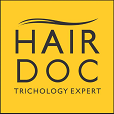
Hair loss is a prevalent concern affecting people of all ages and genders. Understanding the root causes of hair loss is crucial for developing effective non-surgical interventions. In this comprehensive guide, we’ll unravel the mysteries behind hair loss and explore potential solutions for maintaining a healthy, voluminous mane.
- Genetic Predisposition: One of the primary causes of hair loss is genetic predisposition. If your family has a history of hair loss, particularly patterns like male or female pattern baldness, you may be genetically prone to similar issues.
- Hormonal Changes: Hormonal fluctuations, such as those during pregnancy, childbirth, menopause, or conditions like polycystic ovary syndrome (PCOS), can contribute to hair loss. Understanding these hormonal shifts is crucial in addressing the root cause.
- Nutritional Deficiencies: Inadequate nutrition can lead to hair thinning and loss. Deficiencies in vitamins and minerals, especially iron, zinc, vitamin D, and biotin, can impact the health of your hair follicles.
- Medical Conditions: Certain medical conditions, such as thyroid disorders, autoimmune diseases, and chronic illnesses, can manifest as hair loss. Identifying and managing these conditions is integral to halting or reversing hair loss.
- Poor Scalp Health: An unhealthy scalp can be a major contributor to hair loss. Conditions like dandruff, seborrheic dermatitis, and fungal infections can compromise the scalp’s ability to support healthy hair growth.
- Environmental Factors: Exposure to pollutants, harsh chemicals, and UV radiation can damage hair follicles. Understanding how environmental factors affect your hair is crucial for prevention.
- Stress and Emotional Well-being: Chronic stress can disrupt the hair growth cycle, leading to increased shedding. Managing stress through relaxation techniques and mindfulness can positively impact hair health.
- Certain Medications: Some medications, such as chemotherapy drugs, antidepressants, and blood thinners, may have hair loss as a side effect. Consulting with a healthcare professional to explore alternative medications or mitigation strategies is essential.
- Hairstyling Practices: Excessive heat styling, tight hairstyles, and the use of harsh chemicals can damage hair shafts and lead to breakage. Adopting gentle hairstyling practices is crucial for preventing unnecessary stress on your locks.
- Age-Related Hair Changes: As we age, our hair growth naturally slows down, and hair follicles may become less active. Understanding the age-related changes in hair can help in managing expectations and adopting suitable care routines.
Conclusion: By unraveling the various causes of hair loss, individuals can make informed decisions about their hair care routines and seek appropriate non-surgical interventions. Whether it’s addressing genetic predispositions, managing hormonal imbalances, or adopting a nutrient-rich diet, understanding the root causes is the first step towards a healthier, fuller head of hair. Consultation with a non-surgical hair specialist is recommended for personalized guidance tailored to your specific concerns.
Regards,
Dr. Satish Vaishnav
Hair Doc, Trichology Expert, Hair Clinic
Thane, Pune, Chhatrapati Sambhajinagar, Pimpri-Chinchwad



